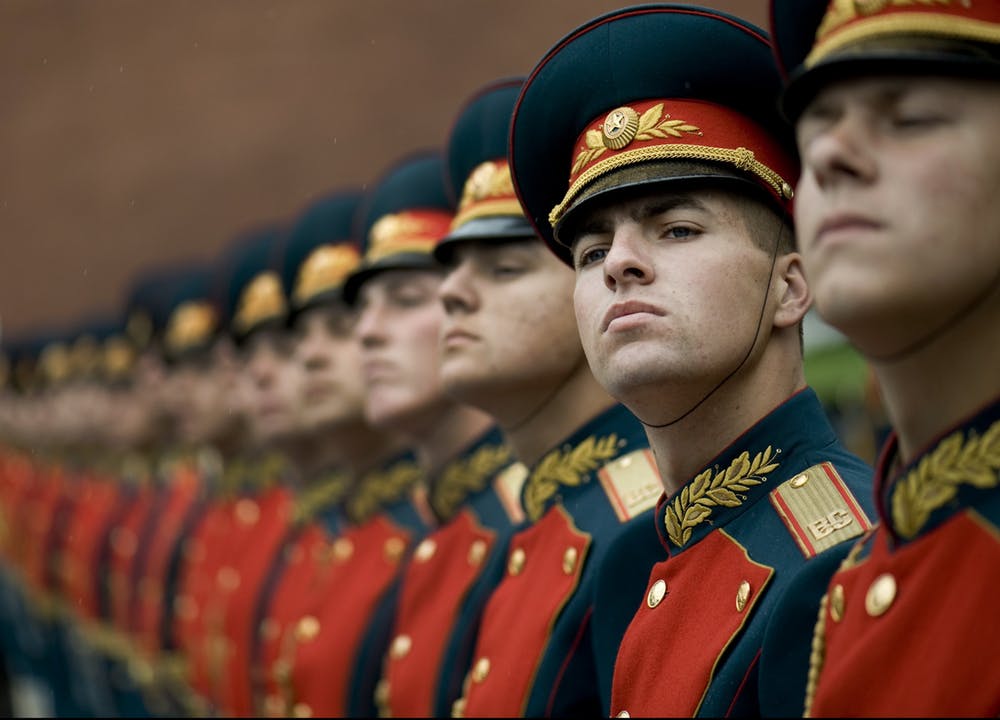
On Sunday February 9, the current President of El Salvador, Nayib Bukele, sent the military to face lawmakers and pressure them to approve a loan for security equipment. President Nayib Bukele took office in June and is thirty-eight years old, the youngest president in El Salvadorian history. Bukele was the former mayor of San Salvador and is a member of the populist party, which has not been a dominating party in El Salvador in recent years. According to Jounalist Anna-Catherine Brigida of The Washington Post, “Bukele is perhaps Latin America’s best-liked leader, with approval ratings approaching 90 percent. A political maverick, with the right- and left- wing parties that control congress, complaining that they are corrupt and fail to serve the people.” (Brigida, 1). While this supportive claim of Bukele is telling on how the countries views the leadership of Bukele, it also sounds like his style is less like a democracy and more similar to an authoritarian way of ruling such as a dictatorship, which Latin America has a long history with.
The loan for security equipment which was the reasoning behind the use of military pressure by Bukele was worth $109 million. The reasoning behind this loan according to CNN Journalist Daniel Silva Fernandez was to “…better equip military personnel and law enforcement officers in their job of tackling out-of-control gang violence in the country.” (Fernandez, 1). The plan which was coupled with the loan is called the ‘Territorial Control Plan’ and it is designed to fight against the crime occurring in El Salvador. The loan is for the third phase of the plan which would prove better equipment for the military so that they can more effectively combat crime in El Salvador. Since the Territorial Control Plan has been introduced the El Salvadorian government has claim that the death count in the country has decreased. Fernandez further elaborates on the crime rates in El Salvador, “According to figures from El Salvador’s National Civil Police, the average daily killings in the country fell from 9.2 in May 2019 – the month before Bukele took office – to 3.8 in January 2020. The government says the decreased death count is a direct result of the Territorial Control Plan.” (Fernandez, 2). But even with a decreased death count, El Salvador still has one of the highest death rates in the world.
On Monday February 10, the parliament in El Salvador pushed back against President Brukele’s threats. In a recent Washington Post Article released by the editorial board they described the pushback from Parliament. They wrote, “The Supreme Court on Monday rebuked both the president and the army, ordering the latter to stay out of politics; newspapers published scathing editorials; and opposition leaders said they would not submit to Mr. Bukele’s threats.” (Board, 1). While this is a strong democratic response from the parliament in El Salvador it still reveals that there are rising tensions between the presidential and legislative powers in El Salvador. Often times when there are these type of power dynamic tensions within government it leads to governmental style transition.
This event raises the question, Is El Salvador transitioning from a fragile democracy to an stern electoral authoritarianism? By enforcing actions of the legislature using military force Bukele’s leadership seems to align much more with an electoral authoritarian style of ruling rather than a liberal democracy, which is what El Salvador claims it has. The key ideas involved in an electoral authoritarian way of ruing are legitimacy claims based on the mixture of liberal democracy and modernizing authoritarianism. Furthermore, electoral authoritarian rule often originates from failed democracy, which is what could occur with the unrest in El Salvador. Journalist Anna-Catherine Brigida explains the decline in democracy further, “Satisfaction with democracy in Latin America fell from 44 percent in 2008 to 24 percent a decade later…” (Brigida, 2). Furthermore, the political climate created by Bukele in El Salvador also has many similar characteristics to ones of an electoral authoritarian style of ruling, such as allowing limited political opposition to hold some elected offices but ensure that the ruling party has the most power. This characteristic is exactly what is occurring with Burkele directing the military to ‘storm’ parliament in order to get what he wants and obtain the ‘most power’.
According to Washington Post journalist Anna-Catherine Brigida, “The military is often viewed as less corrupt, more patriotic and better able to restore order than politicians. Presidents turn to the armed forces to give luster to their governments or legitimacy to their decisions” (Bridgida, 3). This idea further enforces that El Salvador’s governmental style of rule may be shifting further toward an authoritarian style rather than a democratic style of ruling. The fact that President Burkele is using his high rank in the government to enforce his ideals, The Territorial Control Plan, by intimidating the lawmakers in El Salvador aligns much closer to that of a dictator. Burkele is asserting his power with this action as well as revealing the fragility of the democracy which is currently ‘functioning’ in El Salvador.
Works Cited
Anna-Catherine Brigida, Mary Beth Sheridan. “Showdown in El Salvador Shows Growing Role of Military in Latin American Democracies.” The Washington Post, WP Company, 11 Feb. 2020, www.washingtonpost.com/world/the_americas/leaders-in-el-salvador-and-across-latin-america-leaning-on-the-military-to-assert-power/2020/02/11/d1265418-4c22-11ea-967b-e074d302c7d4_story.html.
Board, Editorial. “Option: The Salvadoran President Alarmingly Violates Democratic Norms.”
The Washington Post, WP Company, 12 Feb. 2020, www.washingtonpost.com/opinions/global-opinions/the-salvadoran-president-alarmingly-violates-democratic-norms/2020/02/12/dffbe720-4d01-11ea-bf44-f5043eb3918a_story.html.
Board, Editorial. “Opinion | The Salvadoran President Alarmingly Violates Democratic
Norms.” The Washington Post, WP Company, 12 Feb. 2020, www.washingtonpost.com/opinions/global-opinions/the-salvadoran-president-alarmingly-violates-democratic-norms/2020/02/12/dffbe720-4d01-11ea-bf44-f5043eb3918a_story.html.
Fernandez, Daniel Silva, et al. “Armed Police and Troops Storm El Salvador’s Parliament.” CNN, Cable News Network, 10 Feb. 2020, www.cnn.com/2020/02/10/americas/el-salvador-armed-police-storm-parliament-intl/index.html.
